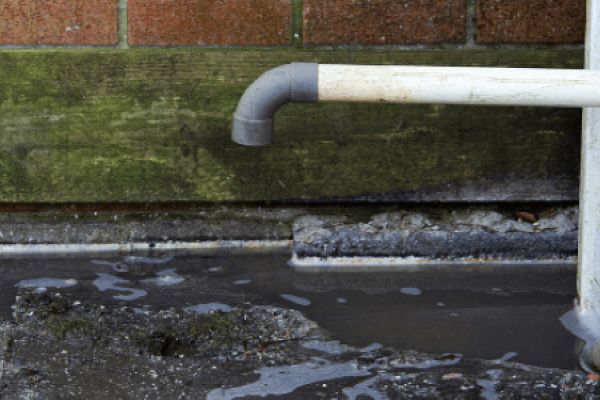In this article
What Are the General Binding Rules?
The General Binding Rules serve as essential regulations governing the discharge of sewage in the United Kingdom. These rules play a crucial role in ensuring that sewage is managed and disposed of in an environmentally responsible manner. But what are they?
Let's take a look at what the General Binding Rules are, understand their significance, compliance requirements, and the broader implications of following these regulations for sustainable sewage management in the UK.
So, what are the general binding rules?
The General Binding Rules are a set of regulations established by environmental authorities in the United Kingdom to govern the discharge of sewage from domestic properties or small businesses. These rules aim to ensure that sewage is managed effectively and does not pose a threat to the environment or public health.
The importance of the GBRs lies in their ability to set clear standards and requirements for the treatment and disposal of sewage. They help prevent pollution of water sources, protect ecosystems, and maintain the overall cleanliness of the surroundings. Compliance with these rules is vital to mitigate the negative impact of sewage discharge on natural habitats and human well-being.
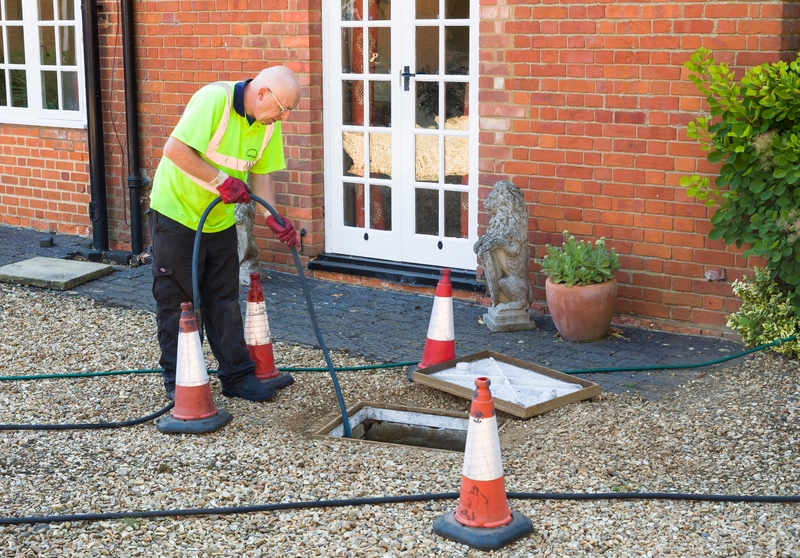
The Rules
The General Binding Rules in the UK regulate small sewage discharges and are crucial for those who discharge waste water to specific locations such as surface waters like rivers and streams. These rules ensure proper treatment and management of sewage to protect the environment.
Here are some key points regarding the General Binding Rules:
-
Rule Compliance: It's essential to comply with the specific rules outlined in the publication "Small sewage discharges in England: the general binding rules." You can find all the sections to the rules via the link and we encourage you to read through and understand them.
-
2020 Regulations: Under the 2020 General Binding Rules, septic tanks that discharge directly to surface water must adhere to government legislation to ensure compliance.
-
Replacement Requirement: Septic tanks that discharge to ditches, streams, or rivers must be replaced to meet the General Binding Rules for small sewage discharges.
-
Permit Exemptions: Under these rules, small sewage discharges can be made without a permit to certain types of "receptors," such as fresh surface waters.
-
Volume Restrictions: The discharge volume should not exceed 2 cubic metres per day as per if it discharges directly to the ground.
-
Recent Updates: The Environment Agency has introduced new rules, numbers 22 and 23, impacting users of private drainage systems, emphasising the dynamic nature of these regulations.
Remember, for more detailed information on the General Binding Rules in the UK, you can refer to the official sources provided in the search results.
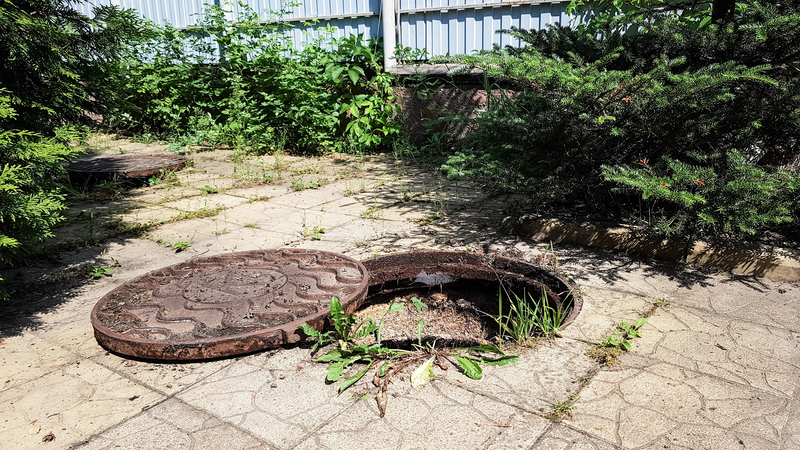
Purpose of the GBRs:
The primary purpose of the GBRs is to regulate the treatment and disposal of domestic sewage in a way that minimises pollution and protects natural ecosystems. By setting standards for the operation of septic tanks and small sewage treatment plants, the GBRs seek to maintain water quality, prevent contamination of surface water and groundwater, and reduce the risk of diseases associated with inadequate sewage management.
The Key Components of the GBRs:
-
Treatment Requirement: Property owners must use an approved septic tank or sewage treatment plant to treat sewage before discharging it into the environment.
-
Compliance Standards: The GBRs stipulate compliance standards that septic tanks and sewage treatment plants must meet, such as British Standards like BS EN 12566-1 certification.
-
Discharge Limits: There are specific limits on the volume of sewage that can be discharged per day to prevent overload and ensure proper treatment.
-
Environmental Protection: The GBRs emphasises the protection of surface water and groundwater from pollution caused by untreated sewage discharge.
Understanding these key components is essential for property owners to ensure they comply with the GBRs and contribute to responsible sewage management practices in the UK. Compliance with these rules is critical for maintaining a clean and sustainable environment for current and future generations.
Compliance Requirements
To comply with the General Binding Rules (GBRs) in the United Kingdom, you must adhere to specific standards for septic tanks and sewage treatment plants. Understanding these compliance requirements is crucial for ensuring proper sewage management and environmental protection.
Compliance Standards:
Septic Tanks:
-
Property owners must ensure that their septic tanks meet the British Standard BS EN 12566-1 or equivalent certification.
-
Regular maintenance and inspection of septic tanks are necessary to uphold compliance standards and prevent issues like leakage or overflow.
Sewage Treatment Plants:
-
Sewage treatment plants must meet the relevant British Standards for performance and efficiency. When it comes to sewage treatment plants, meeting the relevant British Standards for performance and efficiency is crucial. Compliance with these standards plays a vital role in ensuring that sewage undergoes adequate treatment before being discharged into the environment.
-
BS EN 12255 for wastewater treatment plants, encompassing general construction principles.
-
BS EN 12566 for septic tanks and small sewage treatment plants.
-
BS 6297:2007 for drainage fields.

Treatment Requirements:
-
Treatment Process:
-
A septic tank system and sewage treatment plants must effectively treat sewage to remove harmful pathogens and pollutants.
-
Treatment processes may include mechanical, biological, and chemical methods to ensure the quality of the discharged effluent.
-
-
Discharge Limits:
-
The GBRs impose limits on the volume of sewage that can be discharged per day from septic tanks or sewage treatment plants.
-
Adhering to these discharge limits helps prevent overload, reduces the risk of pollution, and safeguards water quality in surrounding ecosystems.
-
Importance of Compliance:
-
Fulfilling compliance requirements for septic tanks and sewage treatment plants is essential for protecting the environment, public health, and ensuring sustainable sewage management practices.
-
Non-compliance with the GBRs can result in fines, legal implications, and environmental harm, highlighting the significance of meeting these regulatory standards.
By understanding and meeting the compliance requirements outlined for septic tanks and sewage treatment plants, property owners can contribute to a cleaner and healthier environment while adhering to the guidelines set forth by the General Binding Rules in the UK.
Recent Changes and Updates:
2020 Amendments:
-
In 2020, significant amendments were made to the GBRs concerning the discharge of sewage from septic tanks and small sewage treatment plants.
-
These updates emphasised stricter standards for sewage treatment and aim to enhance environmental protection measures.
Surface Water Discharge:
-
One notable change includes restrictions on the direct discharge of sewage into surface water bodies, requiring alternative disposal methods to comply with current legislation. Under these rules, septic tanks that discharge directly to surface water no longer comply with government legislation.
This change mandates that alternative disposal methods be implemented to adhere to the updated regulations. By prohibiting direct discharge from septic tanks into surface water, the rules aim to enhance environmental protection and promote sustainable sewage management practices. -
Property owners must adhere to these updated guidelines to meet the revised regulations effectively.
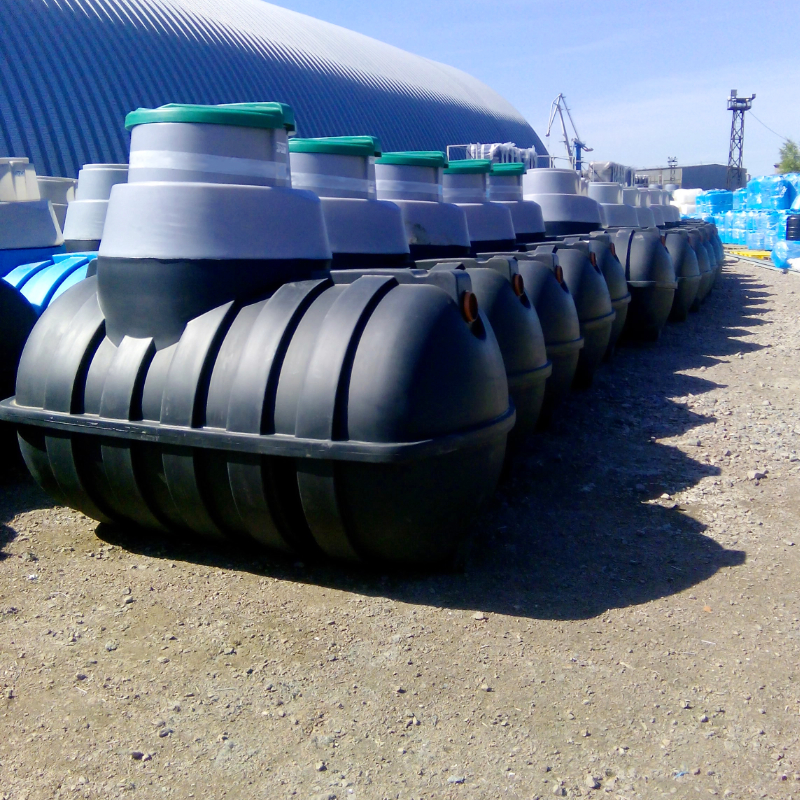
What if my Septic Tank systems don't comply?
If you suspect that your septic tank may not be compliant with the General Binding Rules in the UK, it is advisable to take proactive steps to address the situation. Here are some recommended actions:
-
Assessment: Conduct a thorough assessment of your septic tank system to determine its current compliance status with the regulations.
-
Consultation: Seek advice from a qualified professional, such as a septic tank specialist or environmental consultant, who can evaluate your system and provide guidance on necessary upgrades or modifications.
-
Upgrades: If your septic tank is found to be non-compliant, consider implementing the required upgrades or alternative disposal methods to ensure adherence to the General Binding Rules.
-
Notification: If modifications are needed, inform the relevant authorities or regulatory bodies about your intention to rectify the compliance issues and seek any necessary approvals.
-
Regular Maintenance: Establish a routine maintenance schedule for your septic tank to prevent future non-compliance issues and ensure ongoing adherence to the regulations.
By taking these proactive measures, you can address potential compliance issues related to your septic tank and contribute to environmental protection in line with the General Binding Rules.
Implications of Non-Compliance:
Environmental Impact:
-
Non-compliance with the GBRs can lead to environmental pollution, negatively affecting water quality and ecosystems.
-
Untreated sewage discharge can harm aquatic life, contaminate drinking water sources, and degrade natural habitats.
Legal Consequences:
-
Failure to comply with the GBRs may result in regulatory fines, penalties, or enforcement actions by environmental agencies.
-
You could face legal liabilities and corrective measures for violating sewage discharge regulations.
Health Risks:
-
Improper sewage management due to non-compliance poses health risks to individuals exposed to contaminated water sources.
-
Diseases and infections related to untreated sewage can pose serious threats to public health.
Understanding the recent changes to the GBRs and the repercussions of non-compliance highlights the importance of adhering to sewage discharge regulations. By staying informed and proactively meeting these requirements, property owners can contribute to environmental sustainability and avoid the detrimental effects of improper sewage disposal practices.

Environmental Impact
Compliance with the General Binding Rules plays a significant role in safeguarding the environment and promoting sustainable sewage management practices in the UK. By adhering to these regulations, property owners contribute to the protection of water quality, preservation of ecosystems, and overall environmental well-being. Let's explore how adherence to the GBRs contributes to environmental protection and examine case studies that highlight the importance of following these rules.
Contribution to Environmental Protection:
-
Water Quality Preservation:
-
Proper treatment of sewage before discharge helps prevent harmful pollutants from contaminating water sources, such as rivers, lakes, and groundwater.
-
By meeting GBR compliance standards, property owners actively contribute to maintaining clean and safe water environments for both wildlife and human consumption.
-
-
Ecosystem Conservation:
-
Adherence to the GBRs reduces the risk of ecosystem degradation caused by untreated sewage, preserving biodiversity and supporting healthy habitats for flora and fauna.
-
Protecting natural ecosystems from pollution ensures the sustainability of ecological balance and promotes resilience against environmental stressors.
-
-
Pollution Mitigation:
-
Compliance with sewage discharge regulations minimises the risk of pollution incidents that can harm aquatic life, disrupt ecosystems, and degrade the surrounding environment.
-
By implementing proper sewage treatment measures, property owners uphold their responsibility to reduce pollution and minimise adverse impacts on the environment.
-
Tips for Compliance
Ensuring compliance with the General Binding Rules (GBRs) is essential for you to responsibly manage sewage and protect the environment. By following practical tips and best practices, individuals can maintain their septic tanks and sewage treatment plants effectively, meeting regulatory standards and contributing to sustainable sewage disposal practices in the UK.
Practical Tips for Compliance:
-
Regular Inspections:
-
Schedule routine inspections of septic tanks and sewage treatment plants to identify any issues promptly.
-
Regular monitoring helps detect leaks, blockages, or malfunctions early on, preventing potential compliance violations.
-
-
Proper Maintenance:
-
Follow recommended maintenance schedules provided by manufacturers or professionals to ensure optimal operation of septic systems.
-
Address maintenance tasks such as tank pumping, filter cleaning, and component checks to uphold compliance with the GBRs.
-
-
Record-Keeping:
-
Maintain accurate records of maintenance activities, inspections, and repairs carried out on septic tanks or treatment plants.
-
Documentation serves as proof of compliance and assists in demonstrating adherence to regulatory requirements when needed.
-
-
Use Approved Products:
-
Utilise approved treatment products and chemicals designed for septic systems to avoid damaging the tank or affecting treatment efficiency.
-
Verify that all additives used are compatible with the sewage treatment process and comply with GBR standards.
-
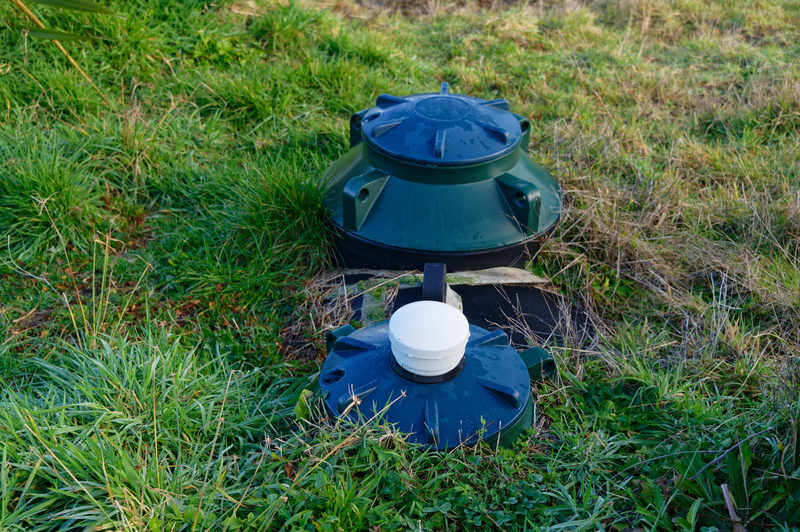
Maintaining Septic Tanks and Treatment Plants:
-
Avoid Overloading:
-
Be mindful of the volume of water and waste entering the system to prevent overload and ensure effective treatment.
-
Implement water conservation measures and proper waste disposal practices to reduce strain on the septic tank.
-
-
Monitor Discharge Quality:
-
Regularly test the quality of effluent discharged from the treatment plant to confirm compliance with GBR standards.
-
Conduct periodic sampling and analysis to assess the effectiveness of the treatment process and address any deviations promptly.
-
-
Seek Professional Guidance:
-
Consult certified professionals or experts in sewage management for guidance on maintaining and upgrading septic systems.
-
Engage with qualified service providers for comprehensive assessments, repairs, and system upgrades to meet regulatory requirements.
-
By incorporating these practical tips and best practices into their sewage management routines, property owners can enhance compliance with the GBRs, promote environmental stewardship, and ensure the efficient operation of septic tanks and sewage treatment plants for long-term sustainability.
Final Thoughts
In conclusion, the General Binding Rules in the UK play a crucial role in regulating small sewage discharges and ensuring environmental protection. These rules impose restrictions on the direct discharge of sewage into surface water bodies, requiring alternative disposal methods to comply with current legislation. Whether you have a shallow dig septic tank for your solid waste, or a larger drainage field tank, by following these rules, you can contribute to sustainable sewage management practices and safeguard the ecosystem for you and your family.
For any enquiries on shallow dig septic tanks, large sewage tanks or if you want together your own reliable septic tank - please contact us today. Whether it's about your septic system, blocked drains or inlet pipe and outlet pipe connections, you can feel confident knowing our dedicated team are here to help.
Get in touch
Contact our friendly and professional team via form, phone or email for any drainage issues you may have.
From blocked drains to septic tank repairs and replacements, we're here to help. We have over 25 years of experience and offer 24/7 emergency callouts.
-
01386 882324
-
WhatsApp
-
This email address is being protected from spambots. You need JavaScript enabled to view it. -
See what our customers think


